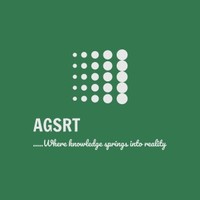Why Landing a Job in the GIS Domain in India is Challenging: Essential Skills and Tools You Might Be Missing.
- AGSRT

- Feb 13, 2024
- 4 min read
Updated: Sep 19, 2024

The Geographic Information Systems (GIS) sector in India stands on the brink of a revolution, with its vast potential for innovation and development across diverse industries. Yet, embarking on a career in this dynamic field can sometimes feel like navigating a labyrinth. Why do so many aspiring GIS professionals find themselves at a standstill, despite the booming demand? This guide dives deep into the essential skills and tools you might be missing and provides strategies to bridge the gap between academia and industry.
The Landscape of Challenges
Bridging the Skill Gap
Imagine graduating with a degree in GIS, armed with theoretical knowledge, only to find the job market thirsting for hands-on experience you don't possess. This disconnect is more common than you think. Real-world applications and practical skills are what employers seek, a realm where many academic institutions fall short.
Keeping Pace with Technological Evolution
In the ever-evolving world of GIS, staying updated with the latest tools and methodologies is not just beneficial—it's essential. Those who lag in keeping pace with these advancements often find themselves sidelined, watching as their more adaptable peers move forward.
Mastering Specialized Tools and Technologies
The basics are just the starting point. In the competitive GIS job market, a profound understanding of advanced applications and specialized tools can set you apart. Yet, many professionals focus narrowly on foundational skills, overlooking the potential impact of niche expertise.
Essential Skills and Tools for Success
The Skills You Need
1. GIS Software Proficiency: The backbone of GIS work lies in software like Esri ArcGIS Suite and QGIS.
2. Spatial Analysis and Data Management: Navigate the complexities of spatial relationships and geospatial data with ease.
3. Remote Sensing and Imagery Analysis: Unlock the secrets hidden in imagery through skilled interpretation and analysis.
4. Programming and Scripting: Enhance efficiency and capability in GIS with programming languages like Python and SQL.
5. Cartography and Visualization: Craft maps that not only inform but also captivate.
6. Web GIS Development: The future of GIS lies in the web. Equip yourself with the knowledge to create interactive web applications.
Tools of the Trade
- GIS Software Tools: ArcGIS Suite and QGIS for your foundational toolkit.
- Remote Sensing and Image Processing: Master ERDAS IMAGINE and ENVI for cutting-edge imagery analysis.
- Programming Languages and Libraries: Dive into Python, ArcPy, and PyQGIS for automation and customization.
- Web Development and GIS: Embrace JavaScript and libraries like Leaflet or OpenLayers for dynamic web maps.
- Database Management Systems: Navigate geospatial data with PostgreSQL/PostGIS and Microsoft SQL Server.
- Cartography and Visualization Tools: Leverage Adobe Creative Suite and data visualization tools like Tableau or Power BI to tell compelling spatial stories.
Bridging the Gap: From Learning to Employment

Continuous Learning and Skill Development
Stay ahead of the curve by dedicating yourself to lifelong learning. Online courses, webinars, and GIS forums offer invaluable resources to deepen your knowledge and skills.
Hands-on Experience
Nothing beats real-world experience. Engage in internships, volunteer for projects, or contribute to open-source GIS projects to build a robust portfolio.
Networking and Professional Development
The GIS community in India is vibrant and welcoming. Join professional organizations, attend industry conferences, and connect with fellow GIS professionals online to expand your network and discover new opportunities.
Showcasing Your Skills
In the digital age, a strong online presence can open doors. Create a professional portfolio showcasing your projects, certifications, and skills. Use platforms like LinkedIn to highlight your expertise and connect with potential employers.

How Avakaza Geoscience Research Technologies Can Propel Your GIS Career
In the journey to securing a coveted position within the GIS domain, Avakaza Geoscience Research Technologies emerges as a beacon for aspiring professionals. With its commitment to advancing geospatial science and technology, Avakaza offers a suite of resources and opportunities that can significantly enhance your employability:
Industry-Relevant Training: Avakaza provides specialized training programs designed to bridge the gap between academic knowledge and the practical skills demanded by the GIS industry. These programs focus on the latest tools, technologies, and methodologies, ensuring you're job-ready.
Real-World Projects: Gain invaluable hands-on experience by working on live projects that Avakaza undertakes. This exposure not only solidifies your understanding of GIS applications but also enriches your portfolio, making you a more attractive candidate to potential employers.
Research and Development Opportunities: For those interested in the cutting-edge of GIS technology, Avakaza's involvement in research and development offers a chance to contribute to innovative projects. Working alongside experts, you can co-author studies, develop new tools, or refine existing technologies.
Networking and Mentorship: Avakaza's strong ties to the GIS community provide an excellent platform for networking. Through events, workshops, and seminars, you can connect with industry leaders, potential mentors, and fellow GIS enthusiasts. These relationships can be pivotal in opening doors to job opportunities.
Career Services: Avakaza offers career counselling and placement services to help you navigate the job market effectively. From resume building to interview preparation, their support is tailored to ensure you stand out in the competitive GIS field.
Leveraging the resources and opportunities provided by Avakaza Geoscience Research Technologies can be a game-changer in your quest for a GIS career. It underscores the importance of aligning with organizations that not only enhance your skillset but also open pathways to employment in this dynamic field. As you venture into the world of GIS, let Avakaza be your guide to unlocking the door to success.
Conclusion
Embarking on a GIS career in India is an adventure filled with challenges, but also immense rewards. By focusing on essential skills, embracing continuous learning, and leveraging your network, you can navigate the job market with confidence. Remember, the key to success lies in being proactive, adaptable, and always ready to explore new frontiers in the realm of Geographic Information Systems.
.png)

Comments